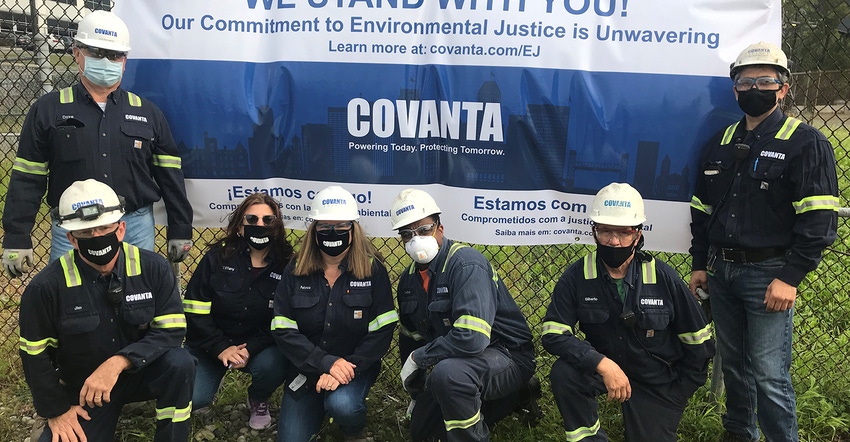April 30, 2021

Covanta reported strong first quarter results this week coming out of the COVID-19 pandemic. Covanta CEO Michael Ranger also outlined the results of the company's strategic review which creates a plan for how Covanta can unlock additional value, a plan which is now being put in motion.
Some of the company's 1Q 2021 earnings highlights include:
Revenue of $498 million, up 6.4% from $468 million a year ago
Net cash provided by operating activities of $52 million, down 14.8% from $61 million a year ago
Adjusted EBITDA of $106 million, up 9.3% from $97 million a year ago
Free cash flow of $19 million, up 5.5% from $18 million a year ago
Net income of $2 million, up from -$32 million a year ago
Earnings per share of $0.02, up from -$0.24 a year ago
Some key drivers of the strong first quarter operating results include 4% year-over-year Waste to Energy (WtE) tip fee price growth as well as ferrous and non-ferrous metals prices rising significantly higher on heightening demand and tight market supply.
Covanta CFO Derek Veenhof also noted on the company's quarterly earnings call that revenue increases were also driven by higher energy prices and new revenue from wholesale load contracts in addition to very good performance from environmental businesses due to improved volumes and cost control.
The company highlighted that while higher commodity market prices contributed directly to improving their EBITDA line together with increasing metals recovery (which have been providing meaningful value in their recovered metals business), they also expect mean reversion in metals prices going forward.
The company also noted that their "very strong operating performance" was partially due to resurgent economic growth in the U.S. and that "at a macro level, they do not see these long run trends changing". The U.S. Bureau of Economic Analysis reported Thursday its advanced estimate of first quarter GDP growth at a surging annual rate of 6.4%.
Amid first quarter weather, the company noted that waste intake and energy generation was lower compared to last year and the company expects to make up this ground in coming quarters.
Within the strategic review, Ranger spoke to several new key initiatives including cost control, capital allocation and overhead rationalization.
Ranger spoke to heightening focus on the company's new fleet of waste energy plants in U.K. markets within its environmental solutions business that is less capital intensive as it has more of a sales and logistics focus. The CEO gave more detail on the expansion of its operating businesses in the U.K. including its new project in Rookery, one of the best markets in the world in terms of pricing and policy support, which is expected to come online in Q1 of next year .
The CEO also spoke to plans to improve the value from contracts with 18 waste energy plants owned by the public sector through revaluations and expirations with the goal of improving the cash flow contribution of financially challenged operations and even shuttering some public sector operating contracts.
One other strategic initiative includes beginning an overhead cost rationalization program that is expected to generate $30 million in annual savings by 2023, which is also expected to bear one-off severance package costs in the short-run.
The company also improved its earnings guidance as a result of improving operating results: the company revised its 2021 Adjusted EBITDA guidance to $460-$480 million from $435-$465 million and its free cash flow guidance to $125-$155 million from $100-$140 million. The company has also established a long-term financial outlook aiming to hit an Adjusted EBITDA of $600 million and Free Cash Flow of $250 million by 2024.
With respect to balance sheet leverage, the company announced a plan to reduce debt to adjusted EBITDA to five times by the end of 2022 through various capital allocation decisions. Some other elements of the strategic review could also improve this timeline, company management noted.
Finally, the management team said that their improved results were a "credit to the resiliency and people of the business and the essential nature of our services".
About the Author(s)
You May Also Like




